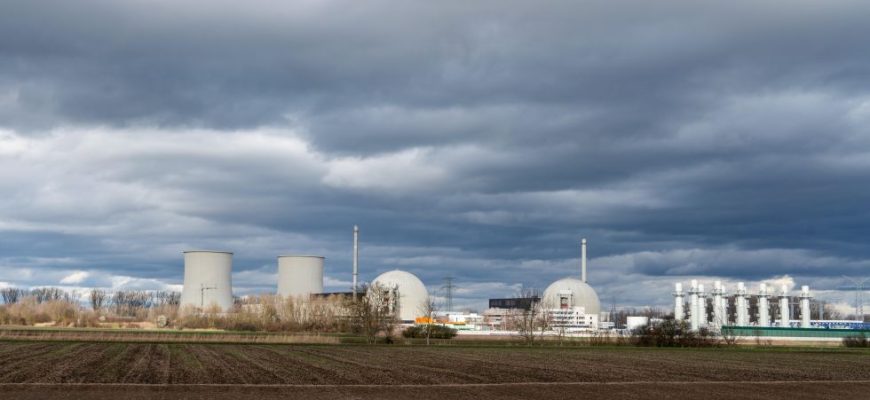Bad news about the state of the German economy is hardly newsworthy anymore. As a result, the latest economic outlook from German research institutes for 2024 and 2025 is likely to be met with a yawn by the public and the federal government. “What else is new?” I often heard during my time in the USA and Great Britain in response to long-known news. It seems as if the institutes are aware of this, because they immediately added the sub-title “Debt brake reform is not a panacea” to the unoriginal main title of their work “The economy is ailing”. Well, someone will probably be upset about that!
But here I want to break the old news about the “sick man of Europe”. Instead of a yawn, they should give us an adrenaline rush. Because if we send ourselves into “sickness,” we will never overcome it. “God, grant me the serenity to accept the things I cannot change, the courage to change the things I can, and the wisdom to know the difference,” says the American theologian’s “Serenity Prayer.” Reinhold Niebuhr. That’s not a bad set of instructions for trying to unravel the German disease.
“In the sluggish overall economic development, economic and structural factors overlap,” the institutes diagnose. Overall, they come to the conclusion that the German economy will probably stagnate this year too. After shrinking by 0.2 percent last year, real gross domestic product is expected to grow by just 0.1 percent this year. The prospects for 2025 are also not exactly encouraging, with growth of 1.4 percent. The international environment isn’t all that bad. The institutes expect global production to increase by 2.5 percent this year and 2.6 percent next year. They even revised their forecast for 2024 upwards by 0.2 percentage points compared to their autumn report. German fatigue cannot be due to global economic developments.
The poor performance is due to peculiarities that we could change
However, a few structural changes in the global economy are having a negative impact on Germany. We are still suffering more than others from the weakness of world trade and the shift in growth forces from the production of goods to services. China’s subdued economic development also has a particularly negative impact on the German economy due to its strong trade links. In the short term, these are things that we can hardly change and therefore have to accept.
However, the poor performance of the German economy compared to other industrialized countries suggests peculiarities that we could change and therefore should not accept. The German economy has not grown since the fourth quarter of 2019. This means that we are even falling behind the perpetually weak Italy and the Brexit-battered Great Britain, whose real gross domestic product rose by four and two percent respectively. And the US economy completely left us behind with an increase of more than seven percent. If you continue the trend in real gross domestic product calculated from 2010 to 2019 until the end of last year, the actual GDP in the USA is almost one percent above this trend value and in Germany it is more than six percent below this trend value.
You might also be interested in:
The institutes are making some effort to find out what the causes of the German malaise are. What is apparent is that employee productivity has not increased for years. Due to the reduction in working hours, the value added per employee actually shrinks because the increase in hourly productivity is too weak to compensate. But what is behind the weak development of productivity?
There are probably several reasons for this. The institutes point out that the public sector – and especially the municipalities – have failed to make appropriate investments to maintain the infrastructure, let alone expand it for a growing economy. With a government spending ratio of around 50 percent of gross domestic product, it cannot be because the politicians have starved the state. The reason is rather that the welfare state has been fattened at the expense of investment spending. Private investments are also weakening, as many companies prefer to build up capacities abroad rather than in Germany. But if the capital stock does not grow, the productivity of employees cannot increase either.
Our energy prices are among the highest in the world
Added to this is the widely lamented proliferation of bureaucracy. The European Union and national governments are in a race to issue regulations for the green and social transformation of the economy. Not only do the bureaucrats themselves do nothing to increase productivity, but they also reduce that of others by throwing sand into the gears of the economy. The consequences are particularly severe when politicians and bureaucrats are blinded by ideology, as is the case in the energy sector. We are shutting down nuclear power plants and banning domestic gas production through fracking, but introducing “nuclear power” and liquefied natural gas to fill the demand gaps. The result of this is energy prices that are among the highest in the world.
Ultimately, the economy is suffering from demographic change. Increasing numbers of qualified and fit workers are retiring without having found successors. Migration is rising steeply, but as the institutes have repeatedly pointed out, the mass immigration cannot fill the gaps. The majority of them are less qualified than the domestic working population and remain in the social system for a long time before they start work. These are usually simple jobs, so their productivity is significantly lower than average – which they further reduce when they start working.
Give me the courage to change the things I can, Niebuhr’s prayer says. However, there is no sign of this among our politicians. Those who are believed to have an idea of what needs to be done lack the courage to do what is necessary. The fear of losing the post is greater than their sense of responsibility. But the majority, especially in the governing parties, are not even trusted to understand what needs to be done. They have nested themselves in the cocoon of their ideology or are simply glossing over the situation. Their predecessors in the German Democratic Republic behaved in a similar way – until the whole building collapsed with a crash.







